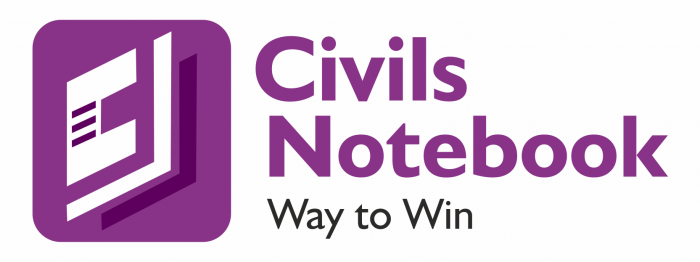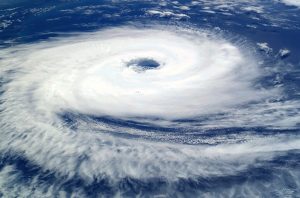At COP-27, India and three others oppose ‘carbon border tax’
- India, China, Brazil, South Africa oppose ‘carbon border tax’
- With the 27th edition of the Conference of Parties (COP) in Sharm El Sheikh nearing its final stages and efforts being ramped up to arrive at a conclusive agreement, a consortium of countries that includes India has jointly stated that carbon border taxes, that could result in market distortion and aggravate the trust deficit amongst parties, must be avoided.
- The European Union has proposed a policy — called the Carbon Border Adjustment Mechanism — to tax products such as cement and steel, that are extremely carbon intensive, with effect from 2026.
- BASIC, a group constituting Brazil, India, South Africa and China, and therefore large economies that are significantly dependent on coal, has for several years voiced common concerns and reiterated their right to use fossil fuel in the interim during their countries’ eventual transformation to clean energy sources.
War causing immense human suffering: G-20
- The declaration acknowledged differences among members on the Russia-Ukraine war but stressed that it was “essential to uphold international law and the multilateral system” as “today’s era must not be of war”.
- It also said that the threat of use of nuclear weapons is inadmissible.
- The declaration also recognised that G20 is not the forum to resolve security issues. However, it agreed that security issues can have significant consequences for the global economy
About G-20 Grouping
- The G20 is an informal group of 19 countries and the European Union, with representatives of the International Monetary Fund and the World Bank.
- The G20 membership accounts for
- two-thirds of the world’s population,
- 85% of global gross domestic product,
- 80% of global investment and
- over 75% of global trade.
- The members of the G20 are
- USA, Canada, Mexico;
- Argentina, Brazil;
- EU, Germany, France, UK, Italy;
- South Africa, Saudi Arabia and Turkey;
- India; Indonesia; Australia;
- Russia, China, South Korea and Japan.
- It does not have any permanent secretariat or headquarters.
- The G20 Summit is formally known as the “Summit on Financial Markets and the World Economy”.
NASA’s Artemis lunar-exploration programme kicks off
- 50The number of years after which the U.S. is a big step closer to putting astronauts back on the lunar surface, since the end of the Apollo programme, with the launch of NASA’s new moon rocket.
- The lift off marked the start of NASA’s Artemis lunar-exploration programme. The space agency is aiming to send four astronauts around the moon in 2024.
About National Aeronautics and Space Administration (NASA)
- The National Aeronautics and Space Administration (NASA) is an independent agency of the executive branch of the United States federal government responsible for the civilian space program, as well as aeronautics and aerospace research.
- Established under the National Aeronautics and Space Act 1958
- Headquarters: Washington, DC, USA
Objectives of NASA
- To expand human knowledge of space
- To lead the world in space-related technological innovation
- To develop vehicles that can carry both equipment and living organisms into space
- To coordinate with international space agencies to achieve the greatest possible scientific advancements.
Foreigners visit India despite restrictions and visa regulations
- 15 In lakh, the number of foreigners, including 4.29 lakh U.S. nationals and 2.4 lakh Bangladeshis, who visited India last year when the country was on an extended period of coronavirus restrictions and visa regulations.
- The maximum number of foreigners who visited India during this period were from the United States (4,29,860)
U.K. inflation in October soars to a 41-year high
- 10 The percentage by which Britain’s inflation rose in October to a 41-year high, fuelling demands for the government to do more.
- Higher prices for food and energy drove October’s inflation rate to the highest since October 1981.
- The new data comes a day before Treasury chief Jeremy Hunt is scheduled to unveil a new budget.
About Inflation
Inflation is a general rise in the price level of an economy over a period of time. When the general price level rises, each unit of currency buys fewer goods and services; consequently, inflation reflects a reduction in the purchasing power per unit of money – a loss of real value in the medium of exchange and unit of account within the economy.
As per RBI, an inflation target of 4 per cent with a +/-2 per cent tolerance band, is appropriate for the next five years (2021-2025).
Types of Inflation
Demand-Pull Inflation
This type of inflation is caused due to an increase in aggregate demand in the economy.
Causes of Demand-Pull Inflation:
- A growing economy or increase in the supply of money – When consumers feel confident, they spend more and take on more debt. This leads to a steady increase in demand, which means higher prices.
- Asset inflation or Increase in Forex reserves – A sudden rise in exports forces a depreciation of the currencies involved.
- Government spending or Deficit financing by the government – When the government spends more freely, prices go up.
- Due to fiscal stimulus.
- Increased borrowing.
- Depreciation of rupee.
- Low unemployment rate.
Effects of Demand-Pull Inflation:
- Shortage in supply
- Increase in the prices of the goods (inflation).
- The overall increase in the cost of living.
Cost-Push Inflation
This type of inflation is caused due to various reasons such as:
- Increase in price of inputs
- Hoarding and Speculation of commodities
- Defective Supply chain
- Increase in indirect taxes
- Depreciation of Currency
- Crude oil price fluctuation
- Defective food supply chain
- Low growth of Agricultural sector
- Food Inflation
- Interest rates increased by RBI
Cost pull inflation is considered bad among the two types of inflation. Because the National Income is reduced along with the reduction in supply in the Cost-push type of inflation
Hold urgent meeting of GST Council, West Bengal’s Amit Mitra urges FM
About GST Council
- Background:
- The Goods and Services Tax regime came into force after the Constitutional (122ndAmendment) Bill was passed by both Houses of Parliament in 2016.
- More than 15 Indian states then ratified it in their state Assemblies, after which the President gave his assent.
- About:
- The GST Council is a joint forum of the Centre and the states.
- It was set up by the President as per Article 279A (1)of the amended Constitution.
- Members:
- The members of the Council include the Union Finance Minister (chairperson), the Union Minister of State (Finance) from the Centre.
- Each state can nominate a minister in-chargeof finance or taxation or any other minister as a member.
- Functions:
- The Council, according to Article 279, is meant to “make recommendations to the Union and the states on important issues related to GST, like the goods and services that may be subjected or exempted from GST, model GST Laws”.
- It also decides on various rate slabs of GST.
- For instance, an interim report by a panel of ministers has suggested imposing 28 % GST on casinos, online gaming and horse racing.
Vivek Joshi has been nominated for RBI Director on Central Board by GoI
In Kchhi, Kerela government setting up Green Hydrogen Hub in partnership with IH2A
With Australia, India co-lead consultations on climate finance at COP27
17th November observed as
- International Student’s Day
- When is World Philosophy Day
Source : THE HINDU

